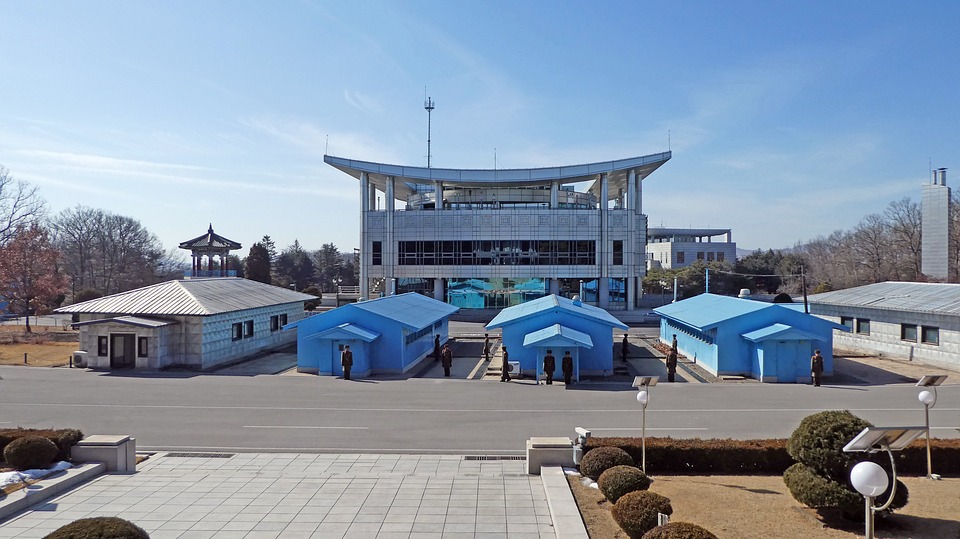Tensions in the Korean peninsula remain high as North Korea is feared to be gearing up for its first nuclear test in years. South Korea’s national security adviser said last week that no soft response would be issued to Pyongyang should it move forward with such a test.
According to South Korea’s Yonhap news outlet, national security adviser Kim Sung-han said no soft response would be made should North Korea carry out its first nuclear test. Kim’s comments follow his trilateral meeting with his US and Japanese counterparts Jake Sullivan and Akiba Takeo in Hawaii.
“If North Korea conducts its seventh nuclear test, our three countries, together with the international community, will maximize cooperation in a way that realizes it was clearly a wrong choice,” said Kim, according to the outlet.
“We have agreed there should never be such a complacent thinking or response that North Korea has conducted just another nuclear test in addition to the six tests it did,” added Kim.
South Korea’s presidential office said the three officials also agreed to cooperate on global supply chain issues, and Kim also raised concerns over the new US policies on subsidies for electric vehicles.
Following a bilateral meeting with Sullivan the day before, Washington pledged to review the impact of the new policies when Seoul expressed concern that the policies would hurt South Korean automobile manufacturers.
This year alone, North Korea has carried out multiple weapons tests and fired two cruise missiles in August following South Korea and the United States resuming its largest field exercises in years. Pyongyang criticized the joint exercises, saying that it was a rehearsal for war.
Last week, the South Korean finance ministry unveiled its first budget proposal under President Yoon Suk-yeol, who took office in May.
The budget proposal that was unveiled Tuesday last week revealed that the government expenditure would be ₩639 trillion or $473 billion for 2023. This marks the first government spending cut in 13 years, six percent smaller than the government spending for this year, including two supplementary budgets.
This also marks the first annual decline in spending since 2010, if there are no more additional budgets for 2023.



 Trump and Merz Meet at White House Amid Iran Strikes and Trade Tensions
Trump and Merz Meet at White House Amid Iran Strikes and Trade Tensions  Senators Urge Better Coordination After Texas Counter-Drone Incidents Disrupt Airspace
Senators Urge Better Coordination After Texas Counter-Drone Incidents Disrupt Airspace  Australia and Canada Strengthen Critical Minerals Partnership Through New G7 Alliance Agreements
Australia and Canada Strengthen Critical Minerals Partnership Through New G7 Alliance Agreements  Trump Praises Delcy Rodríguez as Venezuela Oil Exports Resume
Trump Praises Delcy Rodríguez as Venezuela Oil Exports Resume  Rubio, Saudi Foreign Minister Discuss Iran Threats and U.S. Embassy Riyadh Attack
Rubio, Saudi Foreign Minister Discuss Iran Threats and U.S. Embassy Riyadh Attack  European Allies Deploy Air Defenses to Cyprus After Drone Attack on RAF Akrotiri Base
European Allies Deploy Air Defenses to Cyprus After Drone Attack on RAF Akrotiri Base  Big Tech Signs White House Pledge to Fund Power for AI Data Centers
Big Tech Signs White House Pledge to Fund Power for AI Data Centers  U.S. Middle East Strikes Raise Indo-Pacific Security Concerns for Japan, South Korea, and Taiwan
U.S. Middle East Strikes Raise Indo-Pacific Security Concerns for Japan, South Korea, and Taiwan  U.S. Preparing Possible Corruption Charges Against Venezuelan President Delcy Rodriguez
U.S. Preparing Possible Corruption Charges Against Venezuelan President Delcy Rodriguez  US Lawmakers Raise Security Concerns Over Intel Testing ACM Research Chipmaking Tools
US Lawmakers Raise Security Concerns Over Intel Testing ACM Research Chipmaking Tools  U.S. Begins Charter Evacuations as Iran Conflict Disrupts Middle East Air Travel
U.S. Begins Charter Evacuations as Iran Conflict Disrupts Middle East Air Travel  Brazil Senate Approves Mercosur–EU Trade Agreement After Decades of Negotiations
Brazil Senate Approves Mercosur–EU Trade Agreement After Decades of Negotiations  Santander’s $12.2B Webster Financial Deal Faces Uncertainty Amid U.S.–Spain Trade Tensions
Santander’s $12.2B Webster Financial Deal Faces Uncertainty Amid U.S.–Spain Trade Tensions  Iran Crisis Could Threaten AI Data Center Expansion and Global Chip Demand, South Korea Warns
Iran Crisis Could Threaten AI Data Center Expansion and Global Chip Demand, South Korea Warns  Trump Signals Support for John Cornyn in Texas GOP Senate Primary as Party Seeks to Avoid Runoff
Trump Signals Support for John Cornyn in Texas GOP Senate Primary as Party Seeks to Avoid Runoff  Trump Offers U.S. Insurance and Naval Escort for Tankers as Strait of Hormuz Crisis Disrupts Global Oil Trade
Trump Offers U.S. Insurance and Naval Escort for Tankers as Strait of Hormuz Crisis Disrupts Global Oil Trade  Michael Whatley Wins North Carolina GOP Senate Primary, Setting Up High-Stakes Battle With Roy Cooper
Michael Whatley Wins North Carolina GOP Senate Primary, Setting Up High-Stakes Battle With Roy Cooper 



























